STEPS
TOOLS
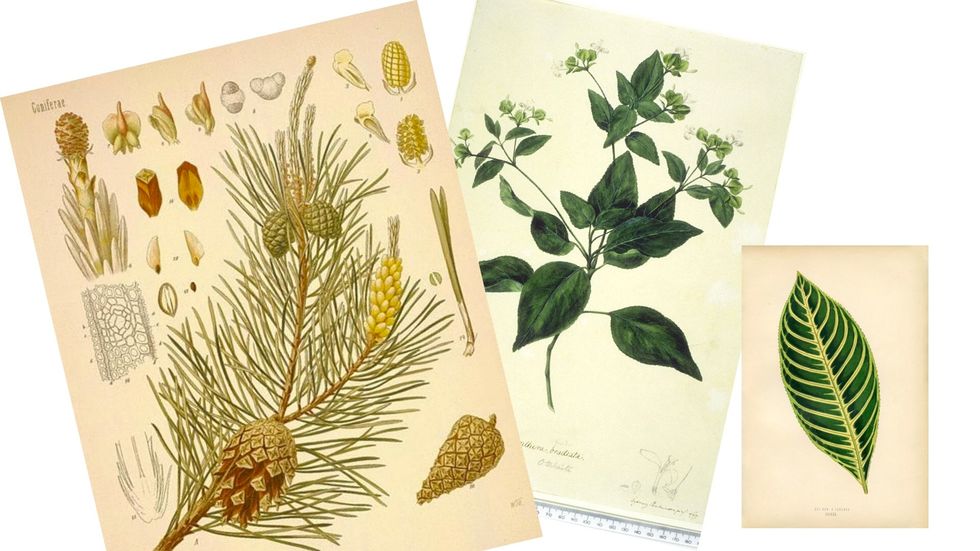
Botanical illustration has a long history. During the age of exploration, explorers came home from far off lands with drawings of the strange and wonderful plants they found.
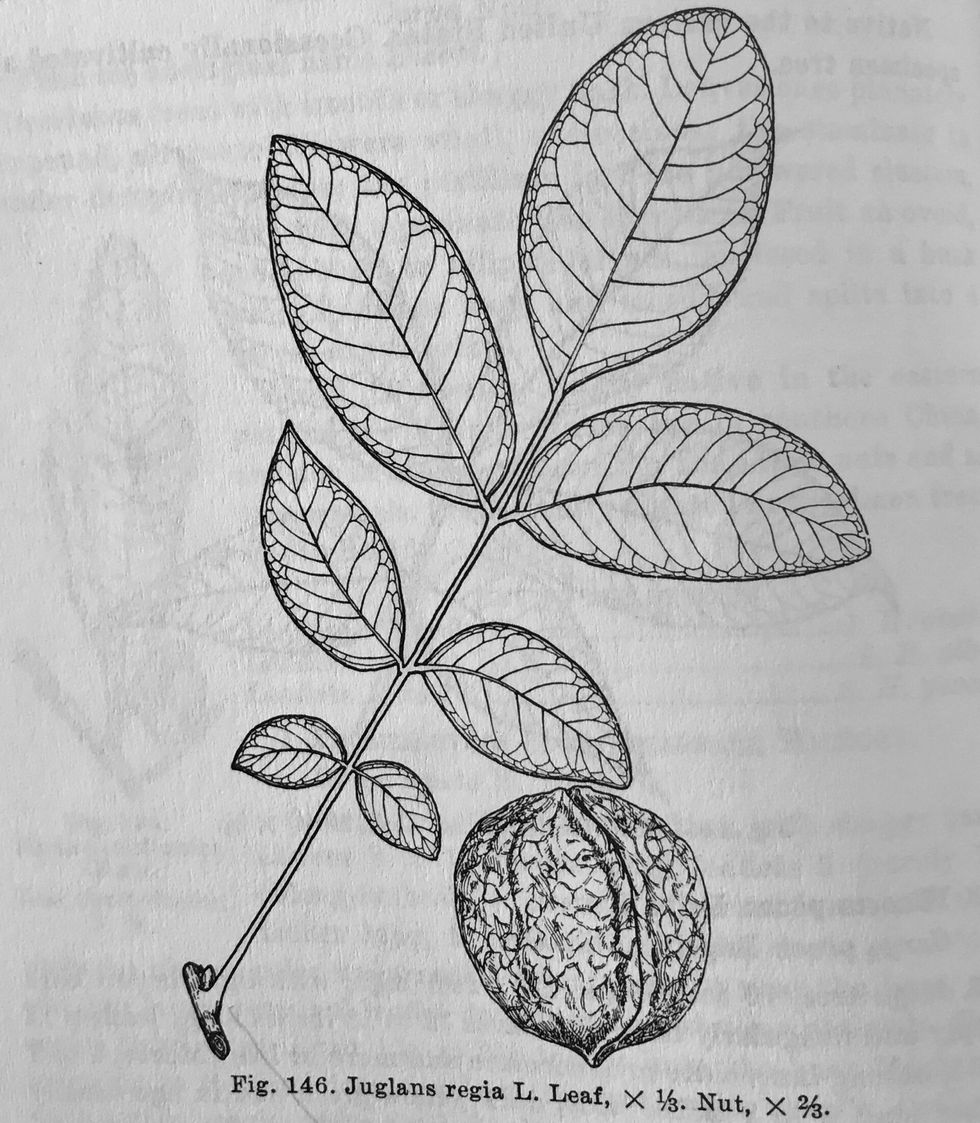
Line drawings of a leaf are helpful to botanists and gardeners in identifying the type of plant. This is a line drawing of the leaf of a walnut tree.
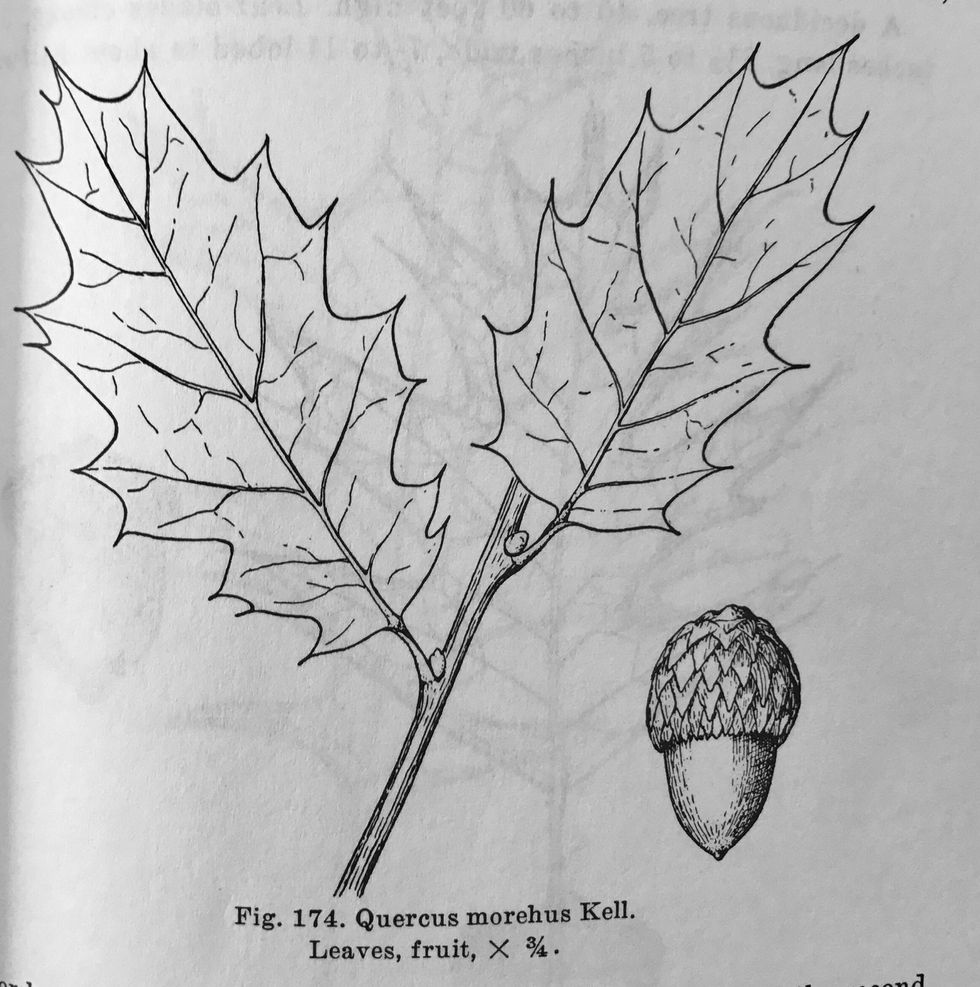
And another of an oak tree.
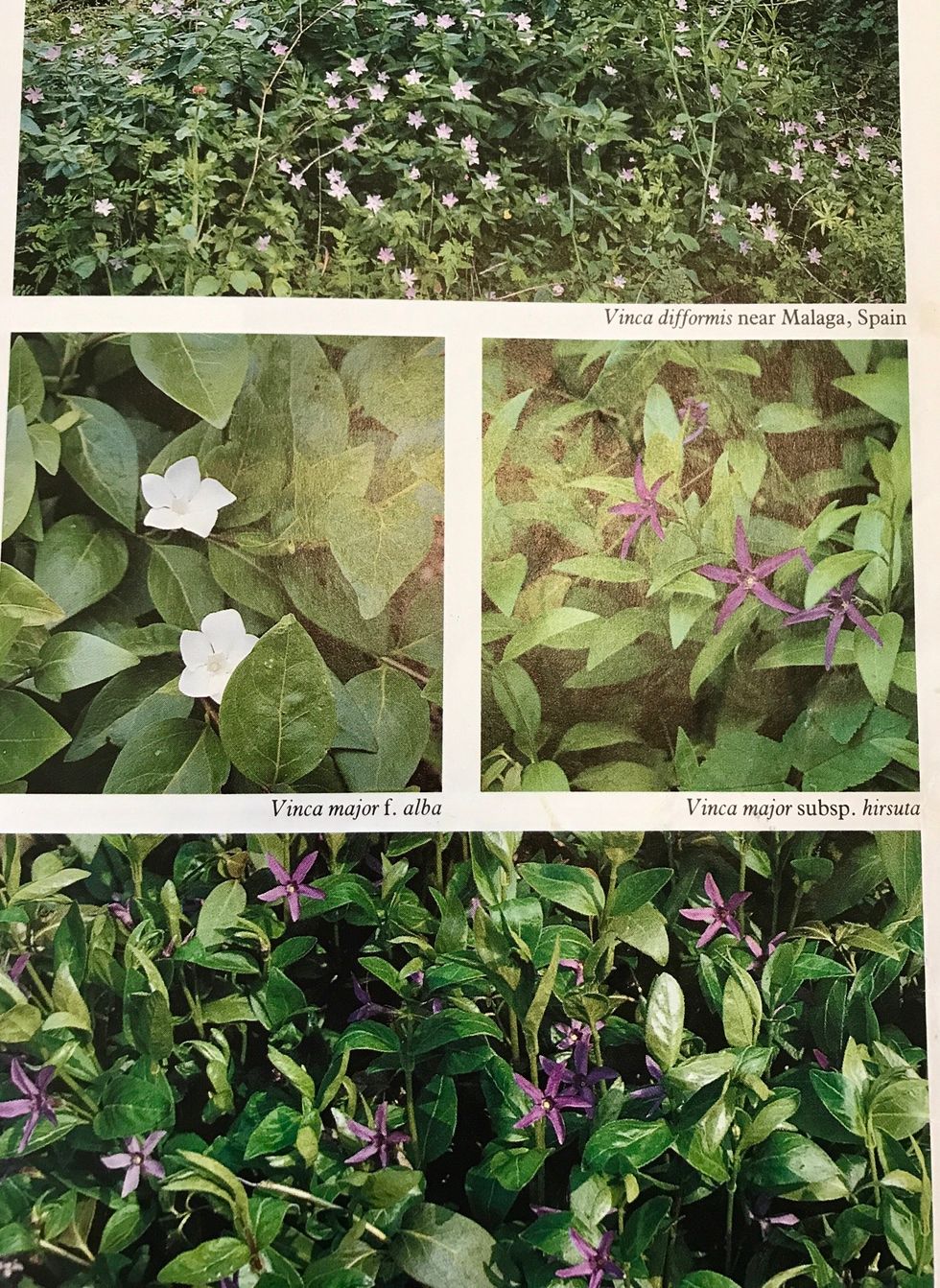
Photos can give us too much information when it comes to identifying a plant. Botanical illustrators make these detailed drawings to help people see the most important details.
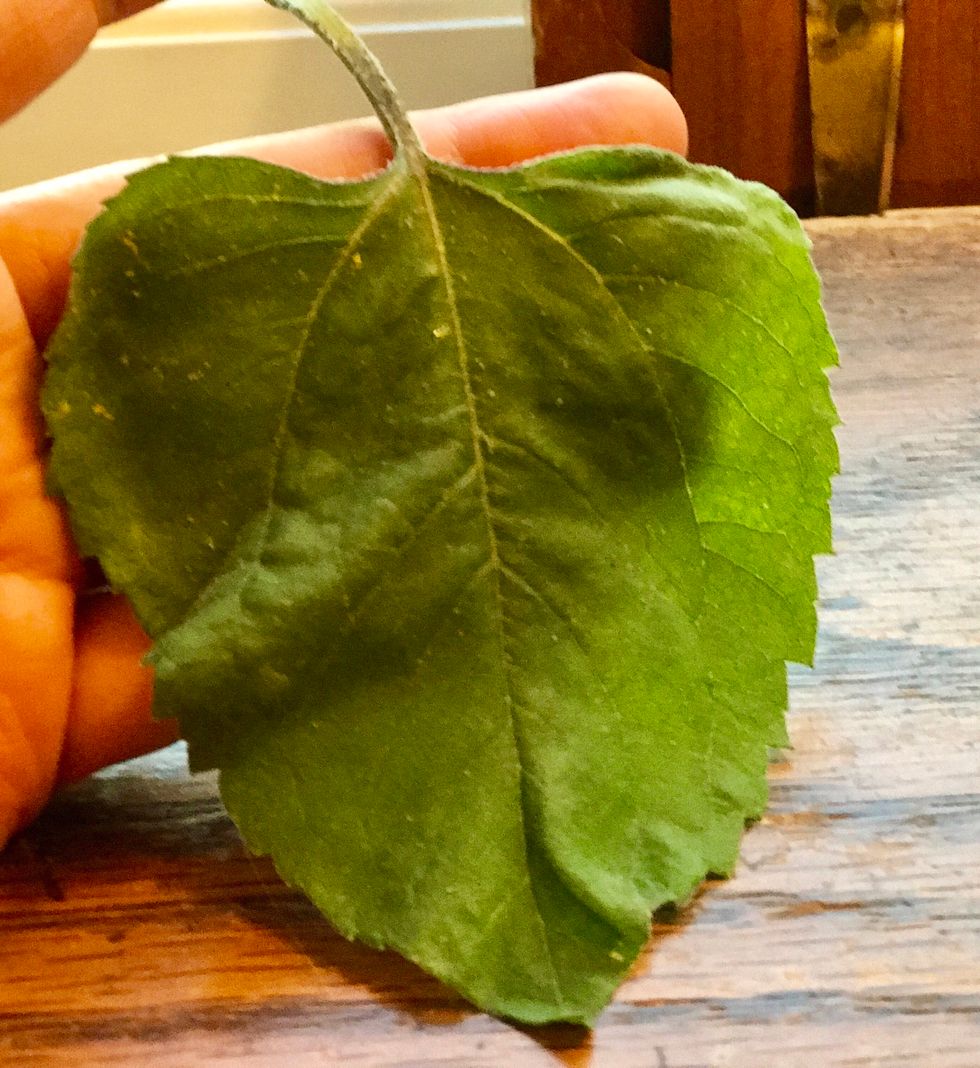
First, you need to look carefully at the leaf you chose. I picked a sunflower leaf. Use your magnifying glass to examine 1) leaf shape 2) leaf edge 3) stem or petiole 4) pattern of the veins
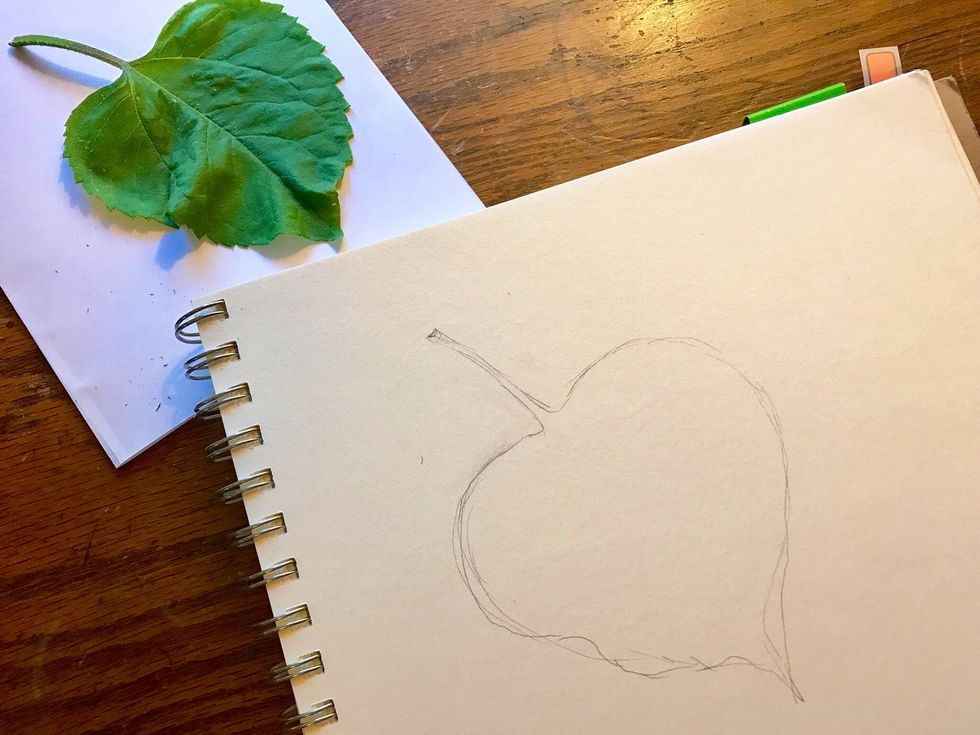
Now that you have carefully observed the 4 identifying characteristics of the leaf it's time to start by sketching the leaf shape. You can see my sunflower leaf is almost heart shaped.
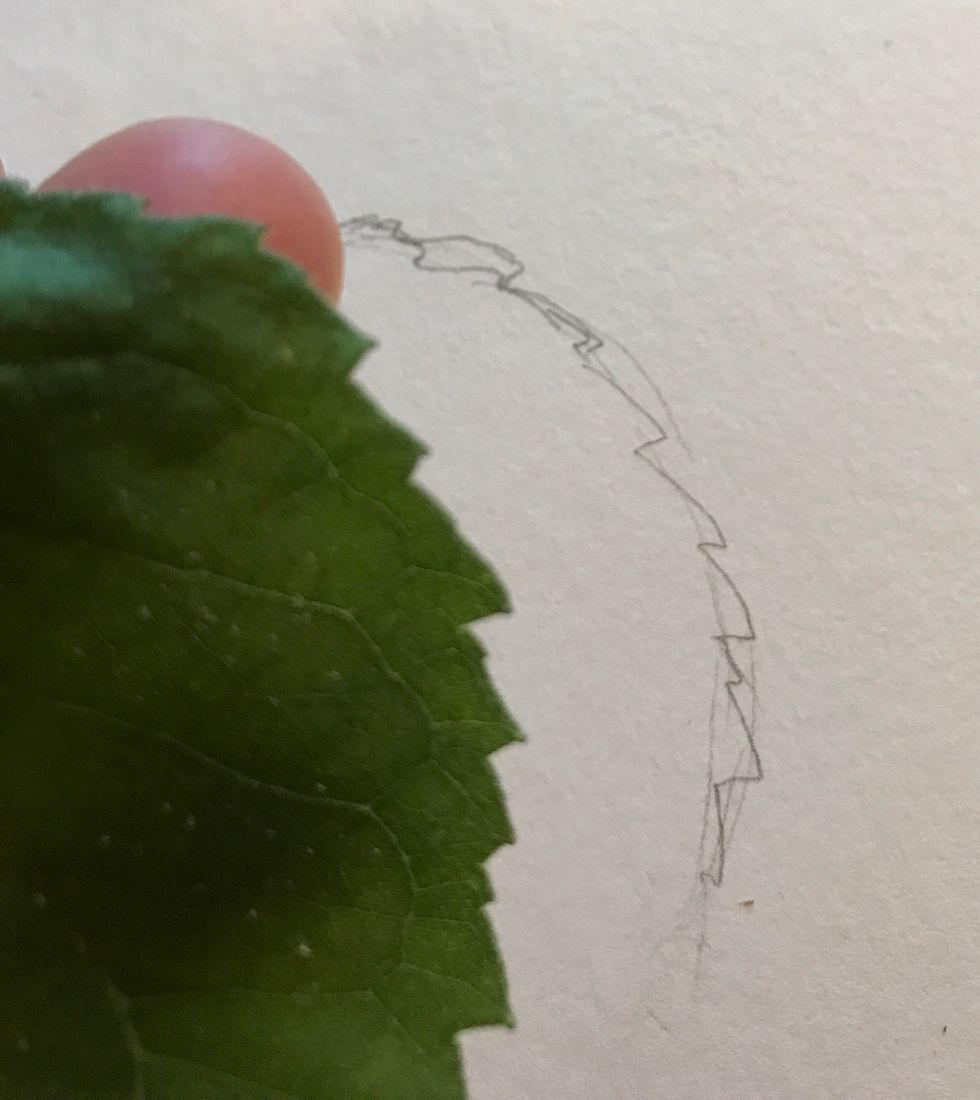
Next, add the details of the leaf edge to your sketch. Notice how my sunflower leaf has small curved teeth on the edge. I have started to add them in.
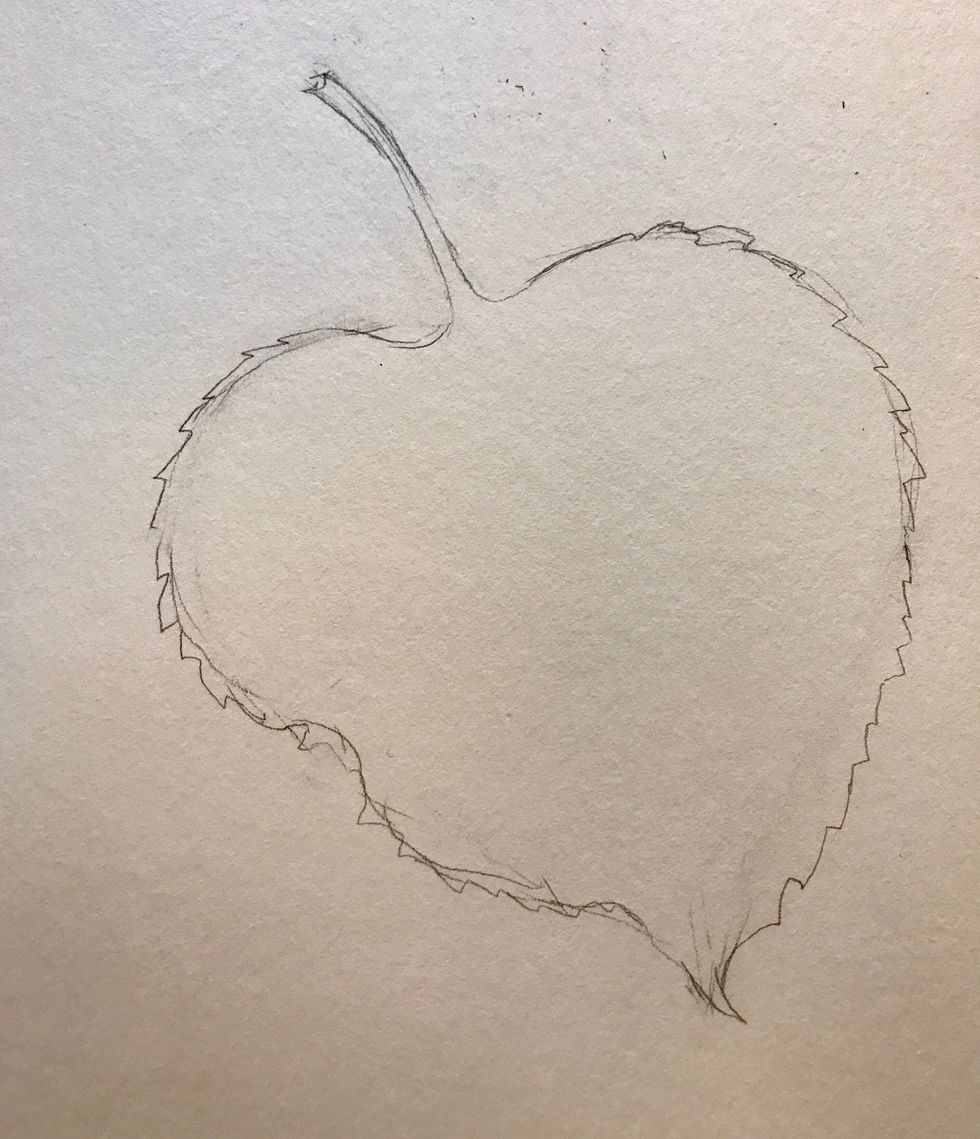
Here's my completed leaf edge.
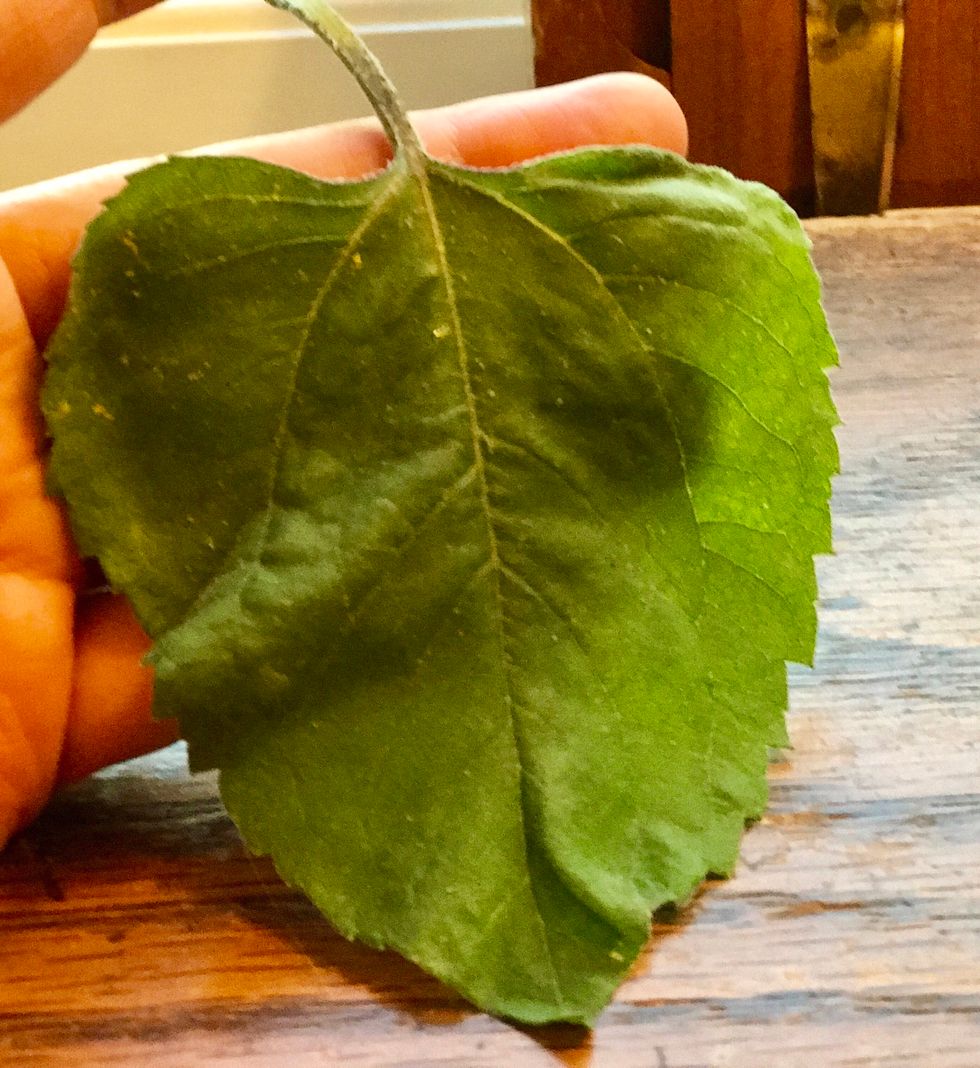
Next I'm ready to add the veins to my sketch. I take a minute to notice the very prominent center vein and the two other curved veins to the right and left of the center vein.
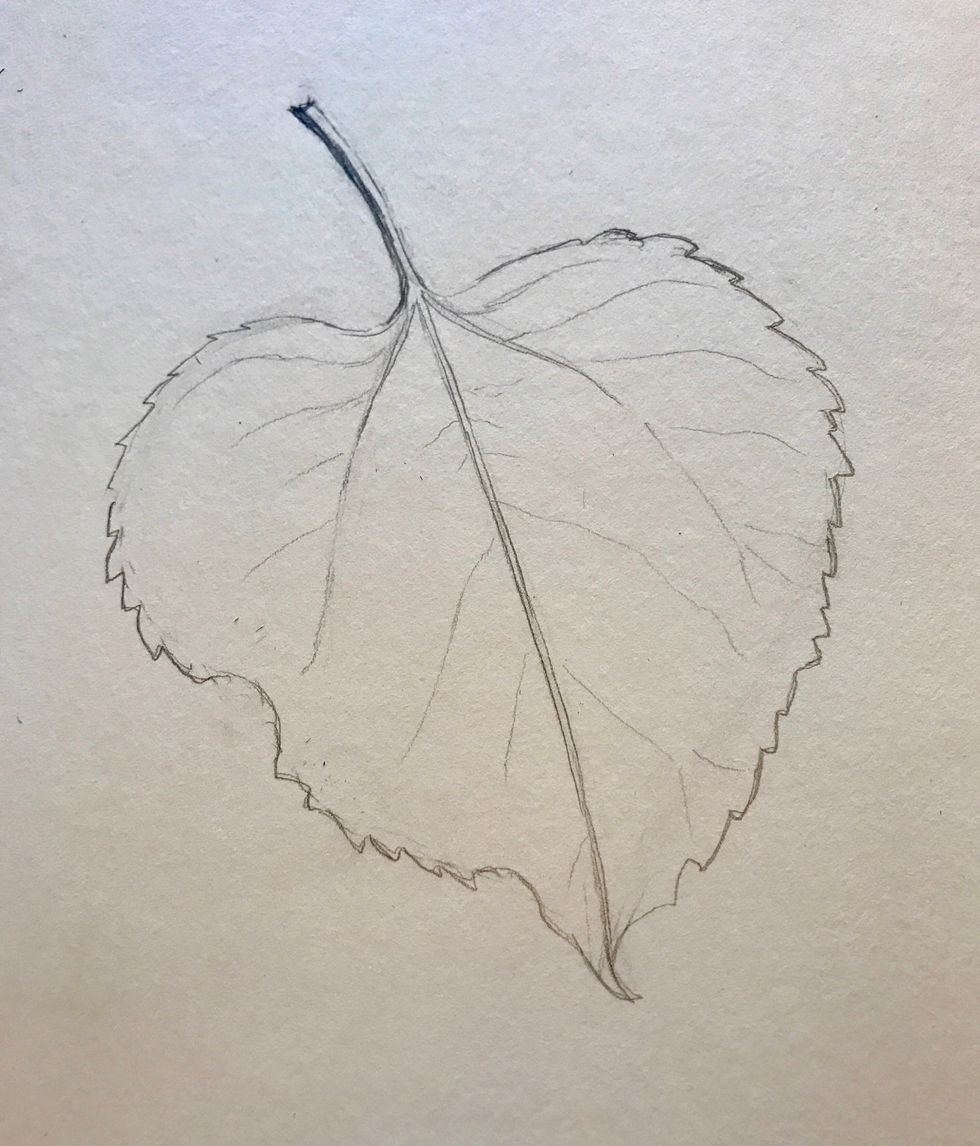
Here's what my leaf looks like after the veins are sketched in.
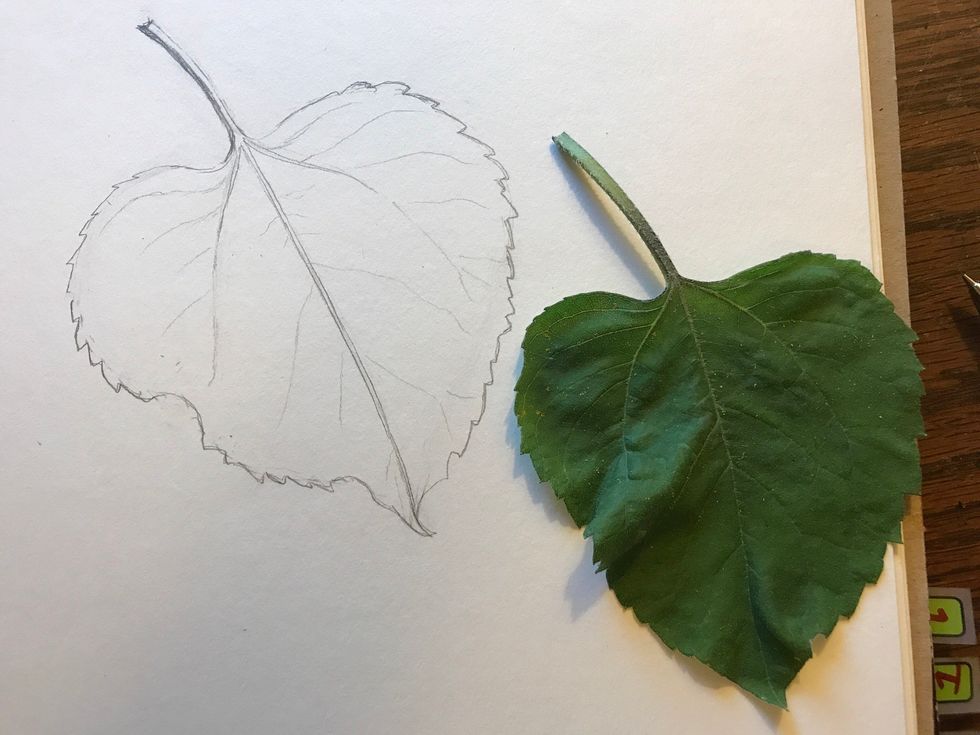
Stay tuned for tomorrow's lesson when we add color to our sketches with pencil or watercolor. Are you interested in learning more about becoming a scientific illustrator?
- Multi-media paper
- Drawing pencil
- Leaf
- Magnifying glass
The Conversation (0)
Sign Up